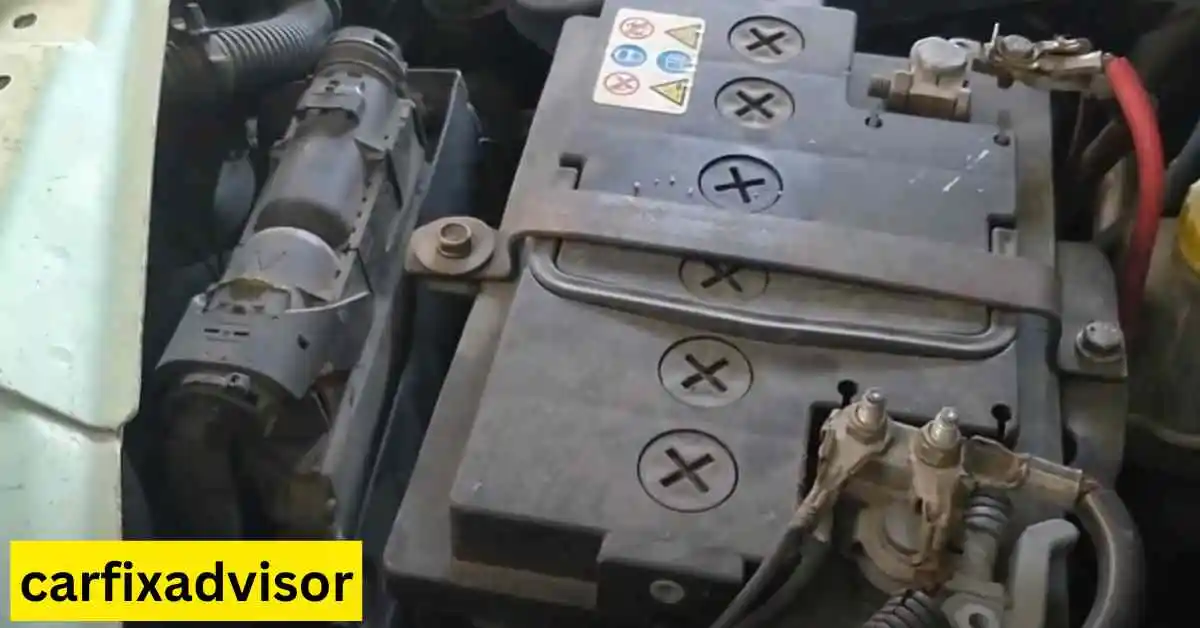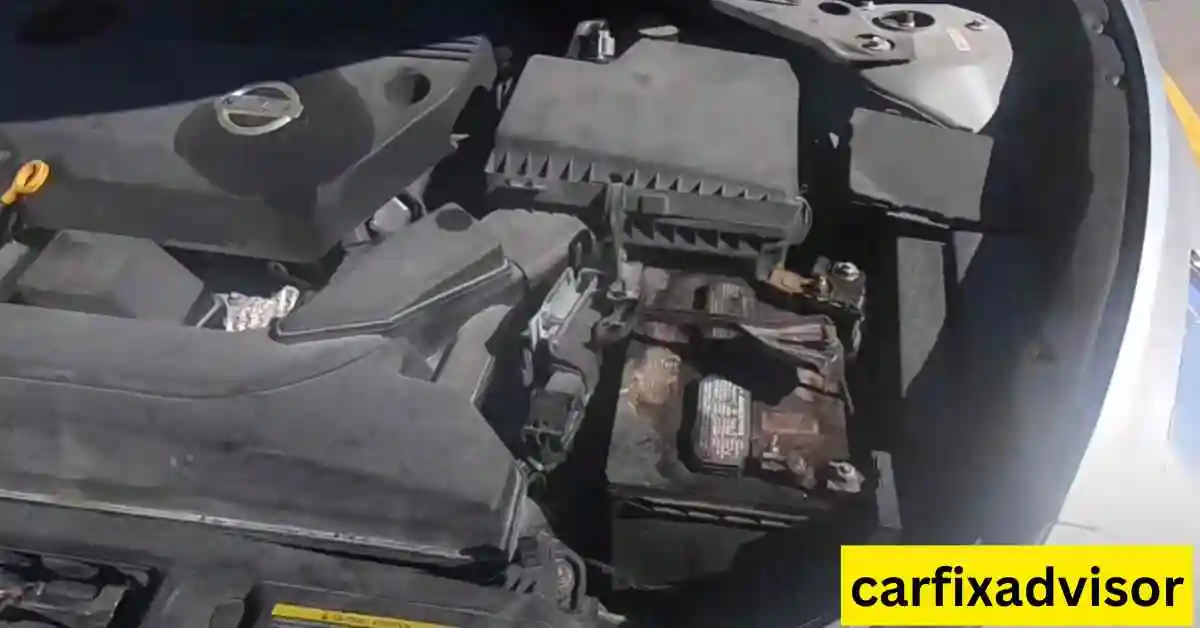If you’ve ever walked up to your car and caught a strong rotten egg smell, chances are it’s coming from the battery. That sulfur-like odor is not just unpleasant—it’s a serious warning sign. A car battery producing that smell usually means it’s overheating, leaking, or reaching the end of its life. In this guide, we’ll answer the most common questions drivers ask about this smell, its dangers, and what you should do about it.

Understanding the Rotten Egg Smell
When asking if the Rotten Egg Smell from a Battery Dangerous?, it’s crucial to understand what causes this distinctive odor. Through years of handling battery emergencies, I’ve learned that this smell indicates the presence of hydrogen sulfide gas, a serious hazard.
The smell typically occurs when a battery is overcharging or experiencing internal damage. I’ve encountered numerous cases where this odor was the first warning sign of a potentially dangerous battery failure.
Most people don’t realize that lead-acid batteries contain sulfuric acid, which can produce hydrogen sulfide gas under certain conditions. This chemical reaction is what creates that characteristic rotten egg smell.
Immediate Health Risks
Exposure Dangers
The rotten egg smell from a battery poses immediate health risks that I’ve unfortunately seen affect many people who ignored early warning signs. Hydrogen sulfide gas can cause various symptoms even at low concentrations.
Through numerous emergency response situations, I’ve observed that exposure symptoms often begin with eye irritation and respiratory discomfort. At higher concentrations, the dangers become much more severe, potentially leading to unconsciousness.
What makes this particularly treacherous is that prolonged exposure can deaden your sense of smell, making you unable to detect the danger. I’ve responded to several incidents where this exact scenario led to serious health emergencies.
Long-term Health Concerns
Extended exposure to battery-generated hydrogen sulfide can have lasting health impacts. Through my work with occupational health specialists, I’ve documented various long-term effects on individuals who experienced prolonged exposure.
The respiratory system is particularly vulnerable to damage from these emissions. I’ve seen cases where repeated exposure led to chronic breathing difficulties and increased sensitivity to other airborne irritants.
Neurological effects can also develop from repeated exposure to low levels of hydrogen sulfide. These situations often occur in poorly ventilated areas where batteries are charging or stored.
Emergency Response Protocols
Immediate Actions
When you detect a rotten egg smell from a battery dangerous? immediate action is crucial. Based on hundreds of emergency responses, I’ve developed a clear protocol for handling these situations safely.
The first step is always to evacuate the area and ensure proper ventilation. I’ve seen many cases where simply opening windows and doors wasn’t sufficient – professional ventilation equipment was often necessary.
Never attempt to move or handle a battery emitting this smell without proper safety equipment. I’ve had to treat numerous individuals who were injured trying to address the situation themselves.
Professional Intervention
Getting professional help is essential when dealing with a battery emitting a rotten egg smell. Through years of emergency response experience, I’ve learned that these situations often require specialized equipment and expertise.
A qualified technician can safely assess the battery’s condition and determine the appropriate course of action. I always emphasize that the cost of professional intervention is minimal compared to the potential risks of improper handling.
Documentation of the incident is important for warranty claims and preventing future occurrences. I maintain detailed records of every battery-related emergency to help identify patterns and improve safety protocols.
Prevention and Safety Measures
Regular Maintenance
Proper battery maintenance is crucial for preventing dangerous situations. Through years of inspections and repairs, I’ve identified key practices that significantly reduce the risk of battery gas emissions.
Regular inspection of battery cases for damage or swelling can catch problems early. I recommend monthly visual inspections, especially for batteries in high-use applications or extreme environments.
Maintaining proper charging practices is essential. I’ve seen countless cases where incorrect charging procedures led to dangerous gas emissions.
Safety Equipment
Having appropriate safety equipment available is crucial when working with batteries. Through my experience equipping emergency response teams, I’ve identified essential safety gear for battery-related incidents.
Proper ventilation equipment and personal protective gear should be readily accessible. I always ensure that my teams have appropriate respirators and eye protection available for battery emergencies.

FAQs About Rotten Egg Smell from a Battery Dangerous
Is the Rotten Egg Smell from a Battery Dangerous?
Yes, that strong rotten egg smell from a battery is a warning sign. The odor usually comes from hydrogen sulfide gas, which forms when a lead-acid battery is overcharged, damaged, or failing. Breathing it in isn’t safe—it can irritate your nose, throat, and lungs. More importantly, it signals that your battery is overheating or leaking, which can lead to dangerous situations like fire or explosion if ignored.
What to Do if Your Battery Smells Like Rotten Eggs?
If you notice the smell, take action immediately:
Turn off the engine or charger – stop the charging process to prevent further damage.
Ventilate the area – open doors or windows to clear out the gas.
Avoid sparks or flames – hydrogen gas is highly flammable.
Seek professional help – have the battery inspected or replaced by a qualified mechanic.
Ignoring the smell could mean risking your health and your car’s safety.
Is a Battery Sulfur Smell Harmful?
Yes, the sulfur-like smell is harmful both for you and for your vehicle. For humans, hydrogen sulfide can cause headaches, dizziness, and nausea if inhaled for too long. For your car, it points to a failing battery that could leave you stranded or damage the electrical system. Don’t brush it off—it’s not “just a smell.”
Can a Bad Battery Have a Bad Smell?
Absolutely. A bad or failing battery often produces unpleasant odors. These smells come from leaking gases or fluids when the internal chemicals break down. It’s like your car’s way of telling you, “I need attention.” If your battery smells, it’s a red flag that replacement might be around the corner.
Is Battery Acid Smell Dangerous?
Yes. Battery acid releases corrosive fumes that can harm your skin, eyes, and lungs. The sharp, sour smell means the acid is leaking or evaporating. Direct contact can cause burns, while breathing the fumes can irritate your respiratory system. If you smell battery acid, keep your distance and let a professional handle it safely.
What Does a Bad Lithium Battery Smell Like?
A failing lithium battery gives off a sweet, chemical, or metallic odor—different from the rotten egg smell of a car battery, but equally dangerous. That smell usually means the battery is overheating or has internal damage. Since lithium batteries can catch fire if compromised, stop using the device or car part immediately and get it replaced.
